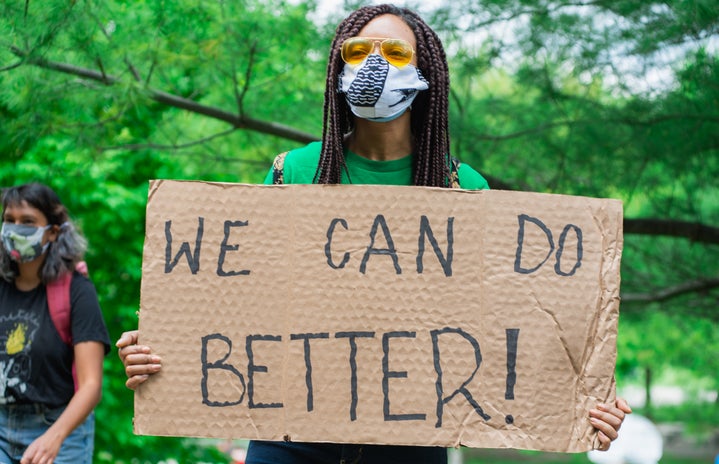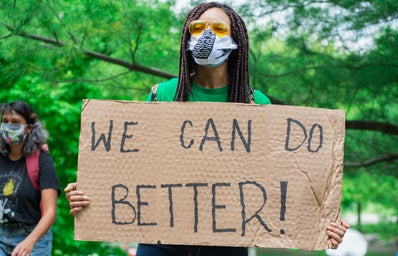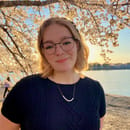The whitewashing of the environmental movement is a huge reason for our lack of progress on climate change. People have the perception that what they can not see can not hurt them. Most white people are not witnessing or experiencing the firsthand effects of climate change. Intersectional environmentalism is the only way to make significant progress and to protect those who are most vulnerable. This Black History Month (and year round!), educate yourself about Black environmentalists who are more important to the environmental movement than the white people on your social media feeds.
- Christopher Bradshaw
-
Christopher Bradshaw founded Dreaming Out Loud (DOL) in Washington, D.C. to address environmental and food justice in marginalized communities of the D.C. metropolitan area. DOL not only addresses food insecurity and inequitable access to healthy and fresh food, but they also connect to the historical legacies of slavery and sharecropping. DOL also offers programs to empower local entrepreneurs who want to start their own businesses or are interested in food justice. Bradshaw was honored by Georgetown University with the 2021 John Thompson Jr. Legacy of a Dream Award. In addition to his work with DOL, Bradshaw continues to advocate for food justice at events across the district.
- MaVynee Betsch
-
MaVynee Betsch, better known as “The Beach Lady,” was a lifelong advocate for natural preservation and the protection of Black historical legacies. She was raised in the South during Jim Crow, sang opera in Europe in the 1950s, and settled in American Beach, Florida- a town built by Florida’s first Black millionaire. Since 1975, Betsch dedicated her life to preserving American Beach and donated her life savings to environmental organizations. Betsch wanted to convince people of the beauty and magic of nature. The Dalai Lama named her an Unsung Hero of Compassion two months after she passed away from cancer.
- Robert Bullard
-
Robert Bullard is often referred to as the father of environmental justice. In 1994, Bullard helped lobby the federal government to establish the Office of Environmental Justice in the Environmental Protection Agency. In 2013, Bullard received the John Muir Award from the Sierra Club, who named an award after Bullard himself in 2014. He is currently a professor at Texas Southern University and has written 18 books related to climate change and justice. His scholarly work, teaching, and activism have made him one of the most influential climate activists in the world.
- Kari Fulton
-
Kari Fulton became an award-winning global environmental activist and climate leader by age 22. During her time as an undergraduate student at Howard University, Fulton became a powerful environmental justice organizer at local, national, and global levels, including working at the largest youth climate summit in the United States. Fulton has been honored with the Brower Youth Award and the Damu Smith Power of One Young Professional Award.
- Margie Richard
-
Margie Richard grew up along the Mississippi River in Norco, Louisiana in a neighborhood run by a Shell chemical plant. She remembers the awful smell of bleach in the air and deadly explosions that were felt for miles. Richard worked with environmental groups to gather evidence, relocate residents, and gain media attention. In 1999, with financial support from the Sierra Club, Richard flew to Geneva to testify before the United Nations Human Rights Commission. There, Richard stood before a high-ranking Shell official and asked him to smell an air sample from Norco. The Shell official refused and Shell soon offered compensation to Norco families. In 2004, Richard was awarded the Goldman Environmental Prize for her landmark victory in environmental justice
The environmental movement is impossible without Black and brown activists. These leaders, and many more, demonstrate the strength, ingenuity, and perseverance that is necessary to make change. We can learn from the historical legacies of these activists and others to fight the climate crisis. It is essential that we educate ourselves during Black History Month and, more importantly, year round.
Sources: 1, 2, 3, 4, 5, 6 & 7, 8, 9, 10, 11, 12, 13, 14
Photos: Her Campus Media



